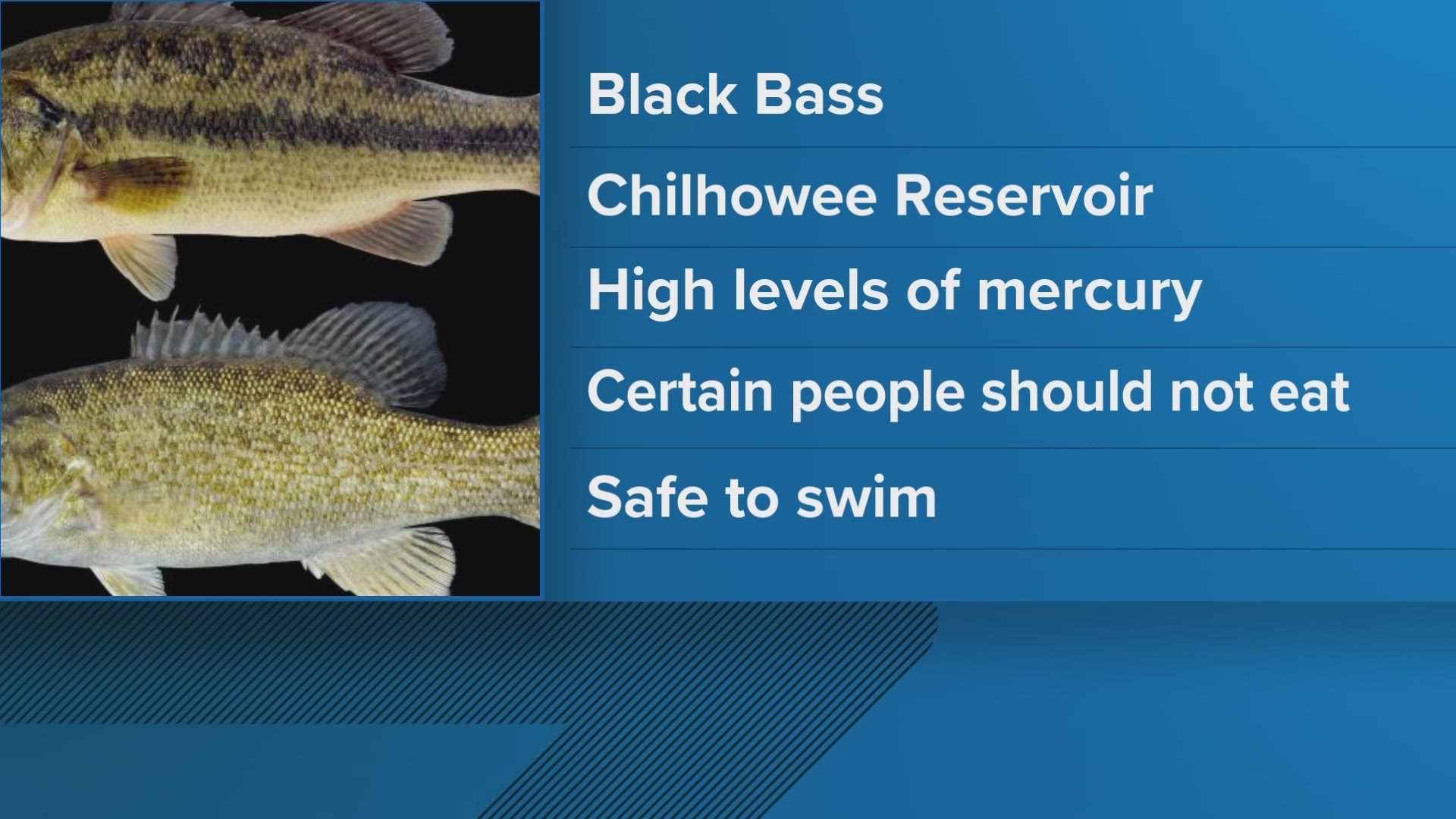KNOXVILLE, Tenn. — The Tennessee Department of Environment and Conservation announces a consumption advisory for black bass on the Chilhowee Reservoir in Monroe and Blount counties due to mercury.
TDEC says children and women who are pregnant or nursing should avoid eating the fish at all and that others can limit consumption to one meal per month.
According to a release, In 2019 and 2020, the Tennessee Wildlife Resources Agency partnered with TDEC to collect a tissue analysis from all black bass species on the Chilhowee Hill Reservoir.
The fish were analyzed by the Tennessee Department of Health, Black bass (largemouth and smallmouth) were above the mercury trigger point of 0.3 mg/kg with .54 mg/kg According to officials the advisory is consistent with TDEC’s responsibilities under the Tennessee Water Quality Control Act.
The advisory applies to all black bass species for the entirety of the reservoir based on data exceeding Tennessee’s trigger point for mercury.
“Unlike ‘Do Not Consume’ advisories that warn the general population to avoid eating fish from a particular body of water altogether, precautionary fish consumption advisories are specifically directed to sensitive populations such as children, pregnant women, nursing mothers and those who may eat fish frequently from the same body of water” said TDEC Deputy Commissioner Greg Young.
TDEC will post warning signs at primary public access points and will work with the TWRA to communicate this information to the public.
“We provide these advisories so the community can make informed decisions about whether or not to consume the fish they catch,” said TDEC Deputy Commissioner Greg Young.
The Tennessee Water Quality Control Act identifies the commissioner of the Tennessee Department of Environment and Conservation as having the authority and responsibility to issue advisories for either water contact hazards like pathogens or excessive health risks due to the accumulation of contaminants in fish or shellfish.
Tennessee’s General Water Quality Criteria provide additional guidance regarding the conditions under which advisories may be warranted.
For a complete listing of Tennessee’s current fishing advisories plus additional information about the advisory issuance process, visit this link.

